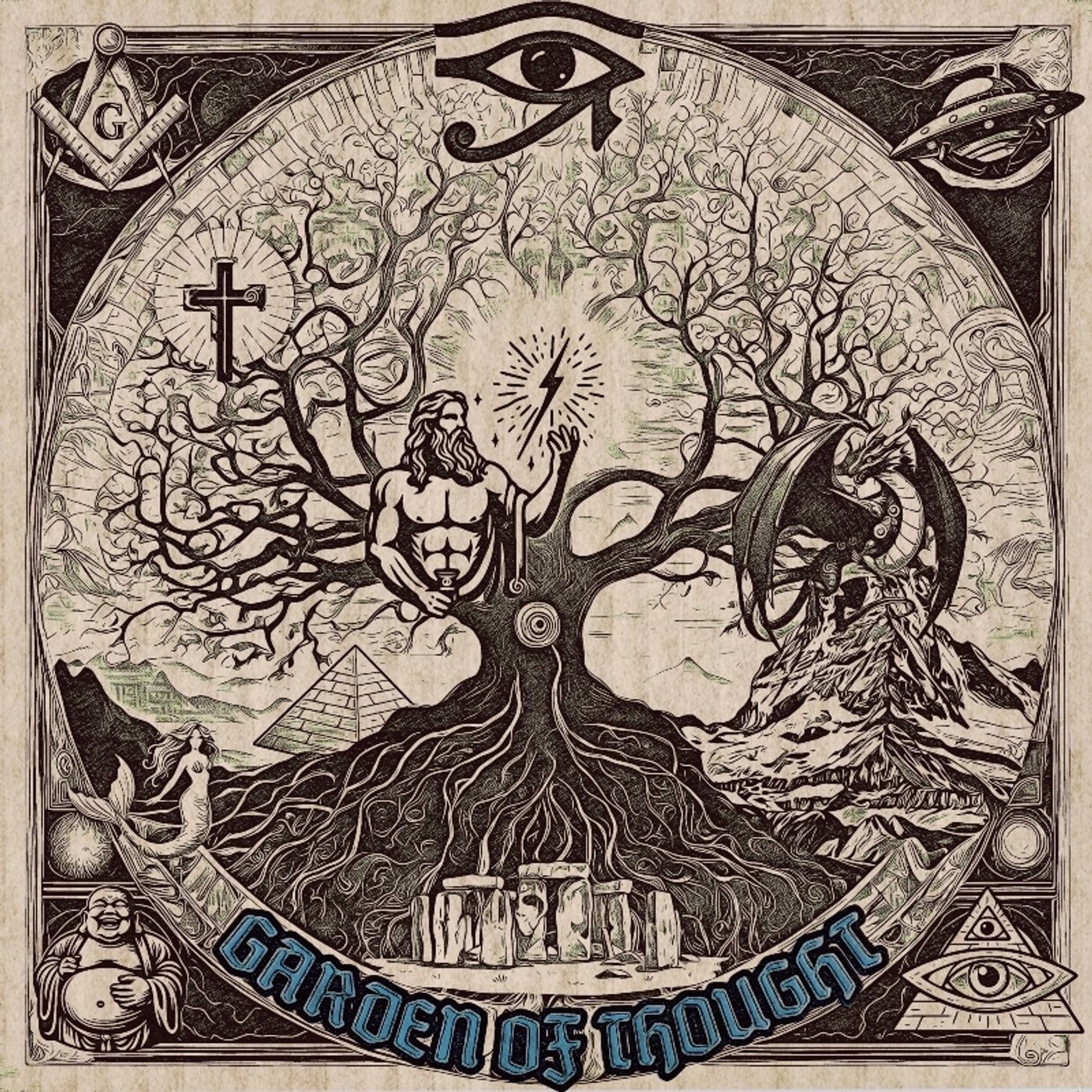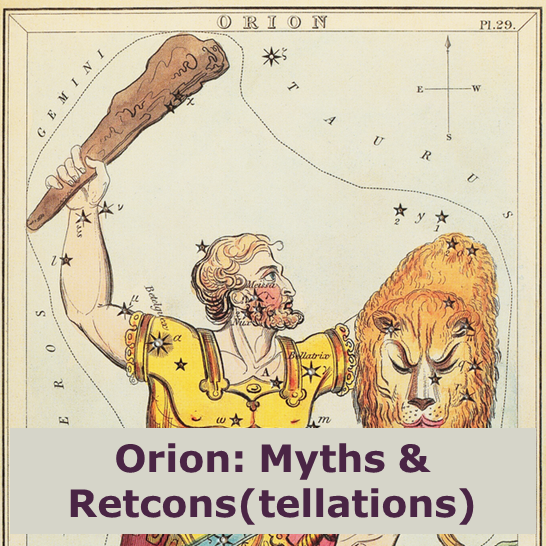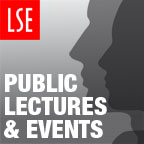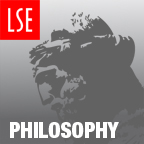Shows
 Garden of ThoughtGarden of Doom E.245 DruidsMark Olly rejoins the Garden to discuss the mysterious druids. What is a druid? Did you know there were different Orders of Druids? Who were the Druids? Where were the Druids? What's the difference between a Druid and a Shaman? What's the difference between a Druid and a wizard? Were there female Druids? What about Stonehenge? Or other henges? We're guys, so we had to bring up the Roman Empire. Why did Cernunnos come up? Mark weighs in on the Freyja v Frigg debate and is she the Morrigan. All this and so much more,2024-09-061h 23
Garden of ThoughtGarden of Doom E.245 DruidsMark Olly rejoins the Garden to discuss the mysterious druids. What is a druid? Did you know there were different Orders of Druids? Who were the Druids? Where were the Druids? What's the difference between a Druid and a Shaman? What's the difference between a Druid and a wizard? Were there female Druids? What about Stonehenge? Or other henges? We're guys, so we had to bring up the Roman Empire. Why did Cernunnos come up? Mark weighs in on the Freyja v Frigg debate and is she the Morrigan. All this and so much more,2024-09-061h 23 The Drunk Duck QuackcastGreek Myths!We're chatting about our fave Greek myths! Greek myths are foundational to a lot of Western culture, they're what superheroes are based on as well as all sorts of epic stories. Lots of scientific concepts and ideas are based on things from mythology. The stories resonate down through the millennia because they're so relatable and human- rather than being about stodgy perfect beings who live in a magical realm and guide their mortal charges like children, the Greek gods of myth have the same emotional drives, lusts, jealousies, and personal problems of any modern person living today. ...2024-08-061h 02
The Drunk Duck QuackcastGreek Myths!We're chatting about our fave Greek myths! Greek myths are foundational to a lot of Western culture, they're what superheroes are based on as well as all sorts of epic stories. Lots of scientific concepts and ideas are based on things from mythology. The stories resonate down through the millennia because they're so relatable and human- rather than being about stodgy perfect beings who live in a magical realm and guide their mortal charges like children, the Greek gods of myth have the same emotional drives, lusts, jealousies, and personal problems of any modern person living today. ...2024-08-061h 02 Mix sister’sMix Sister's Programa Nº 223Arrancamos el programa con la sección ''habla la música'' que nos sigue hablando en este mes en castellano con la palabra ''cruz''. Seguimos con ''rough diamonds'' la propuesta que ofrecemos esta semana es musical tenemos el placer de presentarles a la banda Valenciana ''La llave de Yggdrasil''. Vienen a presentarnos su nuevo sencillo ''El lamento de Frigg''. Seguimos con la playlist diamonds, con las nuevas entradas musicales de este mes de julio, de los artistas que damos a conocer en Mix sister's.
Farid Herrera Tatis-Quiero estar cerca de ti compositor Gustavo Martínez
Cristian Jure- Que será de mí
E...2024-07-1356 min
Mix sister’sMix Sister's Programa Nº 223Arrancamos el programa con la sección ''habla la música'' que nos sigue hablando en este mes en castellano con la palabra ''cruz''. Seguimos con ''rough diamonds'' la propuesta que ofrecemos esta semana es musical tenemos el placer de presentarles a la banda Valenciana ''La llave de Yggdrasil''. Vienen a presentarnos su nuevo sencillo ''El lamento de Frigg''. Seguimos con la playlist diamonds, con las nuevas entradas musicales de este mes de julio, de los artistas que damos a conocer en Mix sister's.
Farid Herrera Tatis-Quiero estar cerca de ti compositor Gustavo Martínez
Cristian Jure- Que será de mí
E...2024-07-1356 min Starry TimeOrion: Myths and Retcons(tellations)Join Jordan and Kit as they retell and ret-con the mythology of the constellation Orion!
Episode transcripts: https://www.starrytimepodcast.com/episode-transcripts
Website: https://www.starrytimepodcast.com/
Social: https://universeodon.com/@starrytimepod
Timestamps
00:00 Intro
00:47 Background
03:02 Myth Retelling
12:15 Myth Analysis
15:08 Retconstellations
19:08 AI Oracle
24:37 Outro
Keywords/Topics Covered: Orion Constellation, Greco-Roman Mythology, Babylonian Astronomy, Sumerian Star Lore, Hungarian Star Myths, Gilgamesh And Scorpion Men, Nimrod The Giant, Orion's Belt, Lakota Star Stories, Scandinavian Mythology, Frigg's Distaff, Artemis And Orion, Greek Hero Myths, Orion’s Birth Myths...2024-01-1325 min
Starry TimeOrion: Myths and Retcons(tellations)Join Jordan and Kit as they retell and ret-con the mythology of the constellation Orion!
Episode transcripts: https://www.starrytimepodcast.com/episode-transcripts
Website: https://www.starrytimepodcast.com/
Social: https://universeodon.com/@starrytimepod
Timestamps
00:00 Intro
00:47 Background
03:02 Myth Retelling
12:15 Myth Analysis
15:08 Retconstellations
19:08 AI Oracle
24:37 Outro
Keywords/Topics Covered: Orion Constellation, Greco-Roman Mythology, Babylonian Astronomy, Sumerian Star Lore, Hungarian Star Myths, Gilgamesh And Scorpion Men, Nimrod The Giant, Orion's Belt, Lakota Star Stories, Scandinavian Mythology, Frigg's Distaff, Artemis And Orion, Greek Hero Myths, Orion’s Birth Myths...2024-01-1325 min The Mystic Sisters Talk WitchcraftGoddesses of Love and Beauty: Exploring the Mythology of Aphrodite/Venus and Frigg/FreyaIn this episode of the Talk Witchcraft podcast, we'll explore the most alluring goddesses in mythology: Aphrodite/Venus and Frigg/Freya. Listen in as we discuss the influence of love, beauty, and devotion in Greek, Roman and Norse mythology. We'll explore the lessons to be found in their stories, from Aphrodite’s role in elevating everyday beauty to Freya's commitment to true love. We'll also discuss how these goddesses are seen today in modern culture and religion, and how they shape our ideas about love and beauty. Plus, learn more about their symbols, rituals and how to honor these div...2023-05-1639 min
The Mystic Sisters Talk WitchcraftGoddesses of Love and Beauty: Exploring the Mythology of Aphrodite/Venus and Frigg/FreyaIn this episode of the Talk Witchcraft podcast, we'll explore the most alluring goddesses in mythology: Aphrodite/Venus and Frigg/Freya. Listen in as we discuss the influence of love, beauty, and devotion in Greek, Roman and Norse mythology. We'll explore the lessons to be found in their stories, from Aphrodite’s role in elevating everyday beauty to Freya's commitment to true love. We'll also discuss how these goddesses are seen today in modern culture and religion, and how they shape our ideas about love and beauty. Plus, learn more about their symbols, rituals and how to honor these div...2023-05-1639 min Weird History: Unexpected and Untold StoriesCommon Words with Surprising Mythological OriginsExplore the fascinating mythological origins behind the names of the days of the week and other common words. Discover how Sunday and Monday are tied to celestial bodies, while Saturday honors the Roman god Saturn. Learn why Tuesday, Wednesday, Thursday, and Friday are named after Norse gods Tyr, Odin, Thor, and Frigg/Freya, respectively. Uncover the surprising connections between mythology and our everyday vocabulary.
#etymology #mythology #daysoftheweek #Norsegods #Romangods #vocabulary #languageorigins #myths Learn more about your ad choices. Visit podcastchoices.com/adchoices2023-04-2115 min
Weird History: Unexpected and Untold StoriesCommon Words with Surprising Mythological OriginsExplore the fascinating mythological origins behind the names of the days of the week and other common words. Discover how Sunday and Monday are tied to celestial bodies, while Saturday honors the Roman god Saturn. Learn why Tuesday, Wednesday, Thursday, and Friday are named after Norse gods Tyr, Odin, Thor, and Frigg/Freya, respectively. Uncover the surprising connections between mythology and our everyday vocabulary.
#etymology #mythology #daysoftheweek #Norsegods #Romangods #vocabulary #languageorigins #myths Learn more about your ad choices. Visit podcastchoices.com/adchoices2023-04-2115 min OMGMOClasification of models and idealizationsIn this episode we explore different classifications of models and dicuss problems such as the problem of accuracy (what does it mean for a model to be accurate and is it always something to strive for?), the problem of style (what are the different ways of representing?), and the problem of ontology (what types of things are models). We also discuss idealizations (omissions or distortions that make a model more explanatory or that allow it to be used mathematically) and the role it plays in scientific modelling.
Some references:
Frigg, Roman and James Nguyen, 2016, “The F...2021-07-0322 min
OMGMOClasification of models and idealizationsIn this episode we explore different classifications of models and dicuss problems such as the problem of accuracy (what does it mean for a model to be accurate and is it always something to strive for?), the problem of style (what are the different ways of representing?), and the problem of ontology (what types of things are models). We also discuss idealizations (omissions or distortions that make a model more explanatory or that allow it to be used mathematically) and the role it plays in scientific modelling.
Some references:
Frigg, Roman and James Nguyen, 2016, “The F...2021-07-0322 min Fipsi: Der philosophisch-psychologische PodcastEpisode 19: Was lässt sich simulieren? mit Stefan RadevDie AGPP möchte Sie auf folgende Ausschreibung aufmerksam machen:"Fipsi reads your thoughts"Wir von Fipsi, dem philosophisch-psychologischen Podcast wollen in noch intensiveren Austausch mit Ihnen treten. Zu diesem Zweck werden wir ein neuartiges Episodenformat einführen, in dem wir Ihre Gedanken diskutieren. Die Idee dabei ist einfach: Senden Sie uns einen kurzen Text (3000-5000 Zeichen inkl. Leerzeichen) zu einem der folgenden Themen bis zum 30.06.2021 per Mail an fipsi@phi-psy.de:1. Sind Gefühle Verhaltensweisen?2. Gibt es ein Erlebnis der Seele?2021-06-282h 27
Fipsi: Der philosophisch-psychologische PodcastEpisode 19: Was lässt sich simulieren? mit Stefan RadevDie AGPP möchte Sie auf folgende Ausschreibung aufmerksam machen:"Fipsi reads your thoughts"Wir von Fipsi, dem philosophisch-psychologischen Podcast wollen in noch intensiveren Austausch mit Ihnen treten. Zu diesem Zweck werden wir ein neuartiges Episodenformat einführen, in dem wir Ihre Gedanken diskutieren. Die Idee dabei ist einfach: Senden Sie uns einen kurzen Text (3000-5000 Zeichen inkl. Leerzeichen) zu einem der folgenden Themen bis zum 30.06.2021 per Mail an fipsi@phi-psy.de:1. Sind Gefühle Verhaltensweisen?2. Gibt es ein Erlebnis der Seele?2021-06-282h 27 OMGMOThe problem of scientific representationIn this episode we discuss the problem of representation: in virtue of what does something represent something else? A plausible account should be able to provide understanding of how representation operates. We explore the classical accounts of similarity and structuralism, as well as their shortcomings using the example of DNA.
Some references:
Bueno, Otávio, 1997, “Empirical Adequacy: A Partial Structure Approach”, Studies in the History and Philosophy of Science, 28(4): 585–610. doi:10.1016/S0039-3681(97)00012-5
Contessa, Gabriele, 2007, “Scientific Representation, Interpretation, and Surrogative Reasoning”, Philosophy of Science, 74(1): 48–68. doi:10.1086/519478
French, Steven, 2003, “A Model-Theoretic Account of Representation (or, I Don’t Know Much...2021-06-2622 min
OMGMOThe problem of scientific representationIn this episode we discuss the problem of representation: in virtue of what does something represent something else? A plausible account should be able to provide understanding of how representation operates. We explore the classical accounts of similarity and structuralism, as well as their shortcomings using the example of DNA.
Some references:
Bueno, Otávio, 1997, “Empirical Adequacy: A Partial Structure Approach”, Studies in the History and Philosophy of Science, 28(4): 585–610. doi:10.1016/S0039-3681(97)00012-5
Contessa, Gabriele, 2007, “Scientific Representation, Interpretation, and Surrogative Reasoning”, Philosophy of Science, 74(1): 48–68. doi:10.1086/519478
French, Steven, 2003, “A Model-Theoretic Account of Representation (or, I Don’t Know Much...2021-06-2622 min Crunchy Christian PodcastMistletoe SecretsEver wonder about mistletoe and why it’s part of Christmas lore and tradition? Join Julie on this week’s episode to learn about mistletoe secret history and uses. It’s been around a long time!
Mistletoe Secret History
Some of the mistletoe secret history starts with the ancient Norse, Greek, and Roman legends. In Norse mythology, the god Baldur the Beautiful—son of the goddess, Frigg—was killed by an arrow made from mistletoe. As Frigg wept over her son, her tears became the pearlescent berries. Afterward, she declared that mistletoe would be a symbol of...2020-11-2020 min
Crunchy Christian PodcastMistletoe SecretsEver wonder about mistletoe and why it’s part of Christmas lore and tradition? Join Julie on this week’s episode to learn about mistletoe secret history and uses. It’s been around a long time!
Mistletoe Secret History
Some of the mistletoe secret history starts with the ancient Norse, Greek, and Roman legends. In Norse mythology, the god Baldur the Beautiful—son of the goddess, Frigg—was killed by an arrow made from mistletoe. As Frigg wept over her son, her tears became the pearlescent berries. Afterward, she declared that mistletoe would be a symbol of...2020-11-2020 min Slack of All Trades070: Masters of Norse MythologyIn this episode Justine and Mike discuss Norse Mythology, its background, gods, and connection to pop culture. They discuss the stories of Jormungandr and Hel, all whilst telling a plethora of dad-jokes. Join in on the discussion at slackofalltrades.comWord of the Day: ChurTopics Discussed:North GermanicScandinavianGreekRomanYggsrasilMidgardAsgardAlfheimYmirAsk and EmblaRagnarokOdinThorLoki TyrHeimdallValhallaValkyriesFolkvangrFreyjaAesirVanir ...2020-09-2800 min
Slack of All Trades070: Masters of Norse MythologyIn this episode Justine and Mike discuss Norse Mythology, its background, gods, and connection to pop culture. They discuss the stories of Jormungandr and Hel, all whilst telling a plethora of dad-jokes. Join in on the discussion at slackofalltrades.comWord of the Day: ChurTopics Discussed:North GermanicScandinavianGreekRomanYggsrasilMidgardAsgardAlfheimYmirAsk and EmblaRagnarokOdinThorLoki TyrHeimdallValhallaValkyriesFolkvangrFreyjaAesirVanir ...2020-09-2800 min The Know Show Podcast#39 Prof. Roman Frigg - Scientific models & predictionshttps://www.patreon.com/user?u=31723331
Hey whats up listeners, welcome back to another episode of the know show where we make the most important academic research accessible to everyone.
My guest on this episode is Professor Roman Frigg of the London School of Economics. Roman is the Director of the Centre for Philosophy of Natural and Social Science. Roman shared with me some of his work and insights on the concept of models and how they are used, and often misused in a wide range of fields. This is particularly relevant now i...2020-09-2455 min
The Know Show Podcast#39 Prof. Roman Frigg - Scientific models & predictionshttps://www.patreon.com/user?u=31723331
Hey whats up listeners, welcome back to another episode of the know show where we make the most important academic research accessible to everyone.
My guest on this episode is Professor Roman Frigg of the London School of Economics. Roman is the Director of the Centre for Philosophy of Natural and Social Science. Roman shared with me some of his work and insights on the concept of models and how they are used, and often misused in a wide range of fields. This is particularly relevant now i...2020-09-2455 min LSE PodcastsUnderstanding Scientific Understanding [Audio]Speaker(s): Professor Henk W de Regt | Lakatos Award winner Henk W de Regt will deliver his lecture on his book Understanding Scientific Understanding. The Lakatos Award is given for an outstanding contribution to the philosophy of science, widely interpreted, in the form of a book published in English during the previous five years. Henk W de Regt (@RegtHenk) is Professor of Philosophy of Natural Sciences, Institute for Science in Society, Radboud University Nijmegen. Roman Frigg is Professor of Philosophy in the Department of Philosophy, Logic and Scientific Method, Director of the Centre for Philosophy of Natural and Social Science...2019-11-221h 24
LSE PodcastsUnderstanding Scientific Understanding [Audio]Speaker(s): Professor Henk W de Regt | Lakatos Award winner Henk W de Regt will deliver his lecture on his book Understanding Scientific Understanding. The Lakatos Award is given for an outstanding contribution to the philosophy of science, widely interpreted, in the form of a book published in English during the previous five years. Henk W de Regt (@RegtHenk) is Professor of Philosophy of Natural Sciences, Institute for Science in Society, Radboud University Nijmegen. Roman Frigg is Professor of Philosophy in the Department of Philosophy, Logic and Scientific Method, Director of the Centre for Philosophy of Natural and Social Science...2019-11-221h 24 Get Full Audiobook in Sci-Fi & FantasyThought X by Ian Watson | Free AudiobookListen to full audiobooks for free on :https://hotaudiobook.com/freeTitle: Thought X
Author: Ian Watson, Adam Marek, Rob Appleby - editor, Ra Page - editor, Robin Ince, Adam Roberts
Narrator: John Banks, Nicola Bryant
Format: Unabridged
Length: 9 hrs
Language: English
Release date: 06-01-17
Publisher: Audible Studios
Genres: Sci-Fi & Fantasy
Summary:
Science is always telling stories. Whether in the creation myths of evolution or the Big Bang, or in the eureka moments of science history, narrative just as much as metaphor is a key tool in the scientist's surprisingly literary toolkit.
Perhaps the most interesting use of story is...2017-06-0209 min
Get Full Audiobook in Sci-Fi & FantasyThought X by Ian Watson | Free AudiobookListen to full audiobooks for free on :https://hotaudiobook.com/freeTitle: Thought X
Author: Ian Watson, Adam Marek, Rob Appleby - editor, Ra Page - editor, Robin Ince, Adam Roberts
Narrator: John Banks, Nicola Bryant
Format: Unabridged
Length: 9 hrs
Language: English
Release date: 06-01-17
Publisher: Audible Studios
Genres: Sci-Fi & Fantasy
Summary:
Science is always telling stories. Whether in the creation myths of evolution or the Big Bang, or in the eureka moments of science history, narrative just as much as metaphor is a key tool in the scientist's surprisingly literary toolkit.
Perhaps the most interesting use of story is...2017-06-0209 min Latest 300 | LSE Public lectures and events | Audio and pdfLSE Literary Festival 2017 | The 'Universe' Starring Man? The Impact of Scientific Revolutions on Humankind's View of Itself [Slides]Speaker(s): Professor John Worrall | Editor's note: We apologise for the poor quality audio in this podcast. Many people unreflectingly think that 'Man' plays a special role in the Universe. Although this view was endorsed by Aristotelian cosmology, revolutionary developments in science, particularly those associated with Copernicus and with Darwin, seem to have made it entirely untenable. So what does science teach us about our place in the Universe? John Worrall joined LSE as an undergraduate in 1965, initially as a student of statistics. But, seduced by Karl Popper's lectures, soon switched to a course that was part statistics and mathematics...2017-02-2200 min
Latest 300 | LSE Public lectures and events | Audio and pdfLSE Literary Festival 2017 | The 'Universe' Starring Man? The Impact of Scientific Revolutions on Humankind's View of Itself [Slides]Speaker(s): Professor John Worrall | Editor's note: We apologise for the poor quality audio in this podcast. Many people unreflectingly think that 'Man' plays a special role in the Universe. Although this view was endorsed by Aristotelian cosmology, revolutionary developments in science, particularly those associated with Copernicus and with Darwin, seem to have made it entirely untenable. So what does science teach us about our place in the Universe? John Worrall joined LSE as an undergraduate in 1965, initially as a student of statistics. But, seduced by Karl Popper's lectures, soon switched to a course that was part statistics and mathematics...2017-02-2200 min Latest 300 | LSE Public lectures and events | Audio and pdfLSE Literary Festival 2017 | The 'Universe' Starring Man? The Impact of Scientific Revolutions on Humankind's View of Itself [Audio]Speaker(s): Professor John Worrall | Editor's note: We apologise for the poor quality audio in this podcast. Many people unreflectingly think that 'Man' plays a special role in the Universe. Although this view was endorsed by Aristotelian cosmology, revolutionary developments in science, particularly those associated with Copernicus and with Darwin, seem to have made it entirely untenable. So what does science teach us about our place in the Universe? John Worrall joined LSE as an undergraduate in 1965, initially as a student of statistics. But, seduced by Karl Popper's lectures, soon switched to a course that was part statistics and mathematics...2017-02-221h 01
Latest 300 | LSE Public lectures and events | Audio and pdfLSE Literary Festival 2017 | The 'Universe' Starring Man? The Impact of Scientific Revolutions on Humankind's View of Itself [Audio]Speaker(s): Professor John Worrall | Editor's note: We apologise for the poor quality audio in this podcast. Many people unreflectingly think that 'Man' plays a special role in the Universe. Although this view was endorsed by Aristotelian cosmology, revolutionary developments in science, particularly those associated with Copernicus and with Darwin, seem to have made it entirely untenable. So what does science teach us about our place in the Universe? John Worrall joined LSE as an undergraduate in 1965, initially as a student of statistics. But, seduced by Karl Popper's lectures, soon switched to a course that was part statistics and mathematics...2017-02-221h 01 Department of Philosophy, Logic and Scientific MethodMSc Philosophy of Science [Video]Contributor(s): Roman Frigg | Roman Frigg introduce the LSE’s MSc in Philosophy of Science.2014-06-2606 min
Department of Philosophy, Logic and Scientific MethodMSc Philosophy of Science [Video]Contributor(s): Roman Frigg | Roman Frigg introduce the LSE’s MSc in Philosophy of Science.2014-06-2606 min Department of Philosophy, Logic and Scientific Method | VideoMSc Philosophy of Science [Video]Contributor(s): Roman Frigg | Roman Frigg introduce the LSE’s MSc in Philosophy of Science.2014-06-2606 min
Department of Philosophy, Logic and Scientific Method | VideoMSc Philosophy of Science [Video]Contributor(s): Roman Frigg | Roman Frigg introduce the LSE’s MSc in Philosophy of Science.2014-06-2606 min Department of Philosophy, Logic and Scientific MethodProfile: Roman Frigg [Video]Contributor(s): Dr Roman Frigg | A profile of Dr Roman Frigg, Reader in Philosophy and Director of CPNSS, Department of Philosophy, Logic and Scientific Method.2011-10-1007 min
Department of Philosophy, Logic and Scientific MethodProfile: Roman Frigg [Video]Contributor(s): Dr Roman Frigg | A profile of Dr Roman Frigg, Reader in Philosophy and Director of CPNSS, Department of Philosophy, Logic and Scientific Method.2011-10-1007 min Department of Philosophy, Logic and Scientific Method | VideoProfile: Roman Frigg [Video]Contributor(s): Dr Roman Frigg | A profile of Dr Roman Frigg, Reader in Philosophy and Director of CPNSS, Department of Philosophy, Logic and Scientific Method.2011-10-1007 min
Department of Philosophy, Logic and Scientific Method | VideoProfile: Roman Frigg [Video]Contributor(s): Dr Roman Frigg | A profile of Dr Roman Frigg, Reader in Philosophy and Director of CPNSS, Department of Philosophy, Logic and Scientific Method.2011-10-1007 min Department of Philosophy, Logic and Scientific MethodCentre for Philosophy of Natural and Social Science [Video]Contributor(s): Dr Roman Frigg | Roman Frigg, Director of CPNSS, briefly explains what work the Centre does, and the role of CPNSS within the department and the School.2011-08-0403 min
Department of Philosophy, Logic and Scientific MethodCentre for Philosophy of Natural and Social Science [Video]Contributor(s): Dr Roman Frigg | Roman Frigg, Director of CPNSS, briefly explains what work the Centre does, and the role of CPNSS within the department and the School.2011-08-0403 min Department of Philosophy, Logic and Scientific Method | VideoCentre for Philosophy of Natural and Social Science [Video]Contributor(s): Dr Roman Frigg | Roman Frigg, Director of CPNSS, briefly explains what work the Centre does, and the role of CPNSS within the department and the School.2011-08-0403 min
Department of Philosophy, Logic and Scientific Method | VideoCentre for Philosophy of Natural and Social Science [Video]Contributor(s): Dr Roman Frigg | Roman Frigg, Director of CPNSS, briefly explains what work the Centre does, and the role of CPNSS within the department and the School.2011-08-0403 min Spring 2011 | Public lectures and events | VideoClimate Forecasting with Chaos, or Chaos in Climate Forecasting?Contributor(s): Dr Roman Frigg | Predicting how climate change will affect us is of paramount importance, yet it is beset with both practical and conceptual problems. This lecture explores the impact that chaos has on what we can reasonably assert on the basis of climate models. Roman Frigg is deputy director of the Centre for Philosophy of Natural and Social Sciences, LSE.2011-02-141h 21
Spring 2011 | Public lectures and events | VideoClimate Forecasting with Chaos, or Chaos in Climate Forecasting?Contributor(s): Dr Roman Frigg | Predicting how climate change will affect us is of paramount importance, yet it is beset with both practical and conceptual problems. This lecture explores the impact that chaos has on what we can reasonably assert on the basis of climate models. Roman Frigg is deputy director of the Centre for Philosophy of Natural and Social Sciences, LSE.2011-02-141h 21 Spring 2011 | Public lectures and events | Audio and pdfClimate Forecasting with Chaos, or Chaos in Climate Forecasting?Contributor(s): Dr Roman Frigg | Predicting how climate change will affect us is of paramount importance, yet it is beset with both practical and conceptual problems. This lecture explores the impact that chaos has on what we can reasonably assert on the basis of climate models. Roman Frigg is deputy director of the Centre for Philosophy of Natural and Social Sciences, LSE.2011-02-141h 21
Spring 2011 | Public lectures and events | Audio and pdfClimate Forecasting with Chaos, or Chaos in Climate Forecasting?Contributor(s): Dr Roman Frigg | Predicting how climate change will affect us is of paramount importance, yet it is beset with both practical and conceptual problems. This lecture explores the impact that chaos has on what we can reasonably assert on the basis of climate models. Roman Frigg is deputy director of the Centre for Philosophy of Natural and Social Sciences, LSE.2011-02-141h 21 Spring 2011 | Public lectures and events | Audio and pdfClimate Forecasting with Chaos, or Chaos in Climate Forecasting?Contributor(s): Dr Roman Frigg | Predicting how climate change will affect us is of paramount importance, yet it is beset with both practical and conceptual problems. This lecture explores the impact that chaos has on what we can reasonably assert on the basis of climate models. Roman Frigg is deputy director of the Centre for Philosophy of Natural and Social Sciences, LSE.2011-02-141h 21
Spring 2011 | Public lectures and events | Audio and pdfClimate Forecasting with Chaos, or Chaos in Climate Forecasting?Contributor(s): Dr Roman Frigg | Predicting how climate change will affect us is of paramount importance, yet it is beset with both practical and conceptual problems. This lecture explores the impact that chaos has on what we can reasonably assert on the basis of climate models. Roman Frigg is deputy director of the Centre for Philosophy of Natural and Social Sciences, LSE.2011-02-141h 21 Spring 2011 | Public lectures and events | VideoClimate Forecasting with Chaos, or Chaos in Climate Forecasting?Contributor(s): Dr Roman Frigg | Predicting how climate change will affect us is of paramount importance, yet it is beset with both practical and conceptual problems. This lecture explores the impact that chaos has on what we can reasonably assert on the basis of climate models. Roman Frigg is deputy director of the Centre for Philosophy of Natural and Social Sciences, LSE.2011-02-141h 21
Spring 2011 | Public lectures and events | VideoClimate Forecasting with Chaos, or Chaos in Climate Forecasting?Contributor(s): Dr Roman Frigg | Predicting how climate change will affect us is of paramount importance, yet it is beset with both practical and conceptual problems. This lecture explores the impact that chaos has on what we can reasonably assert on the basis of climate models. Roman Frigg is deputy director of the Centre for Philosophy of Natural and Social Sciences, LSE.2011-02-141h 21 LSE Research channel | VideoAs birds need ornithologists: science and philosophy of scienceContributor(s): Dr Roman Frigg | Scientists produce the technologies that characterise modern life and their theories help us to understand how the world works – they are transparently useful. But why do we need philosophers of science? In this short film Dr Roman Frigg, a former theoretical physicist who is now senior lecturer in the Department of Philosophy, Logic and Scientific Method, argues that all science is the result of a particular philosophical attitude. One of the tasks of philosophers of science is to analyse science in light of these attitudes. Philosophers can also feed back into science and Dr Frigg po...2009-10-1507 min
LSE Research channel | VideoAs birds need ornithologists: science and philosophy of scienceContributor(s): Dr Roman Frigg | Scientists produce the technologies that characterise modern life and their theories help us to understand how the world works – they are transparently useful. But why do we need philosophers of science? In this short film Dr Roman Frigg, a former theoretical physicist who is now senior lecturer in the Department of Philosophy, Logic and Scientific Method, argues that all science is the result of a particular philosophical attitude. One of the tasks of philosophers of science is to analyse science in light of these attitudes. Philosophers can also feed back into science and Dr Frigg po...2009-10-1507 min LSE Research channel | VideoAs birds need ornithologists: science and philosophy of scienceContributor(s): Dr Roman Frigg | Scientists produce the technologies that characterise modern life and their theories help us to understand how the world works – they are transparently useful. But why do we need philosophers of science? In this short film Dr Roman Frigg, a former theoretical physicist who is now senior lecturer in the Department of Philosophy, Logic and Scientific Method, argues that all science is the result of a particular philosophical attitude. One of the tasks of philosophers of science is to analyse science in light of these attitudes. Philosophers can also feed back into science and Dr Frigg po...2009-10-1507 min
LSE Research channel | VideoAs birds need ornithologists: science and philosophy of scienceContributor(s): Dr Roman Frigg | Scientists produce the technologies that characterise modern life and their theories help us to understand how the world works – they are transparently useful. But why do we need philosophers of science? In this short film Dr Roman Frigg, a former theoretical physicist who is now senior lecturer in the Department of Philosophy, Logic and Scientific Method, argues that all science is the result of a particular philosophical attitude. One of the tasks of philosophers of science is to analyse science in light of these attitudes. Philosophers can also feed back into science and Dr Frigg po...2009-10-1507 min